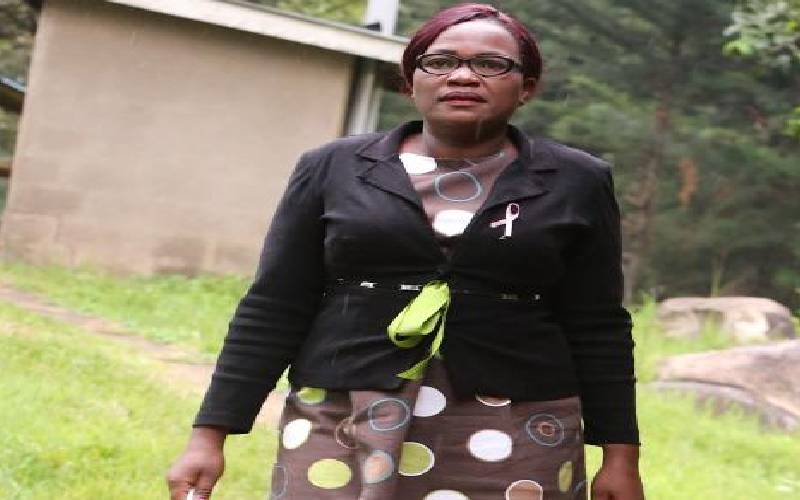×
The Standard e-Paper
Stay Informed, Even Offline

Eunice Mulehane, cervical cancer survivor speaks of how the scourge has a trail in her family. [Collins Oduor, Standard]
“We didn’t understand, until my father died of stomach cancer, that it was all genetic and frequent screening was the only option to save my family,” Eunice Mulehane says with a pained look in her eyes.